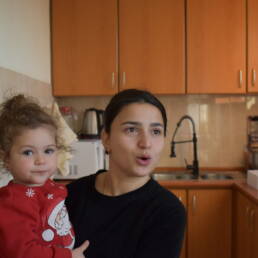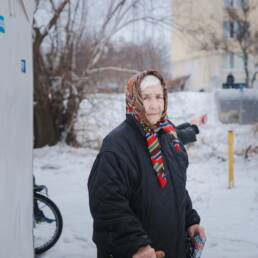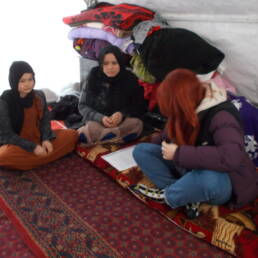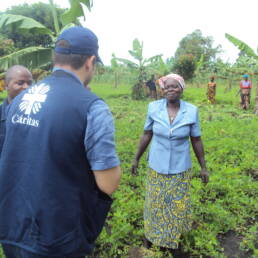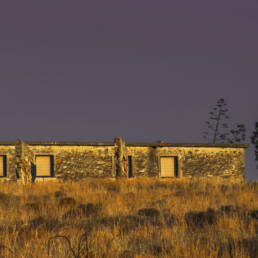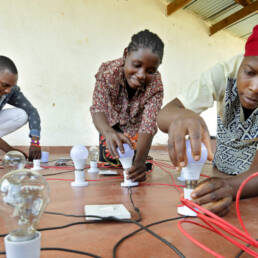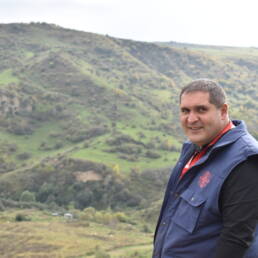Author
António Ramalho and Susana Criado
Caritas Viseu in Portugal
Nearly 5,000 Roma people live in a remote village in eastern Slovakia. Despite the many challenges, new housing projects and smart use of public space give hope for the future.
The Luník IX is a very isolated social district located in the Košice region in eastern Slovakia. It is like a mini village, currently home to 4,000 to 5,000 Roma people. This social neighbourhood is composed of different housing structures, from classic buildings to settlements along its margins. However, people in all structures live in very poor conditions. Luník IX residents are essentially divided into different categories according to their different housing and economic conditions. Among those who work, some are active locally, in jobs outside the settlement, while others perform seasonal jobs in nearby countries.
Most of the inhabitants of this neighbourhood do not have regular work contracts and most of them depend on social benefits to make a living. Compared to many other Roma settlements, the residents surprisingly do not recognise a leader figure here, so the stratification of groups of residents is more related to aspects such as family and neighbourhood relations. To support this population, the Salesians of Don Bosco have been working in the neighbourhood since July 2008, with the help of the Salesian Sisters and numerous volunteers. That year, they took over the construction of the community centre “Saleziáni Don Bosca – Košice Luník IX – Komunitné Centrum”, which was inaugurated in 2012 and visited by Pope Francis in 2021 (this visit prompted a much needed cleanup of the area).
Komunitné Centrum Saleziàni Don Bosca

The facilities of the community centre, as well as the activities that take place there, provide a warm and educational environment of peace and security, allowing the Luník IX residents to develop and strengthen their learning capacities. They are supported in acquiring new skills that gradually contribute to promoting their social inclusion. The main activities focus on pedagogy, where young people receive support with schoolwork, through individual or collective tutoring. They also have access to a library. The centre also has a spacious multifunctional gymnasium, where the residents can practice different sports. This space is also used for other purposes, such as cultural shows and performances. The community centre also has a public laundry, where the Luník IX residents can wash and dry their clothes; it is run by a fellow resident. There is also a kitchen, where mainly the young people cook and bake. Preparing and enjoying good food together helps in creating a friendly environment. Finally, the centre provides music classes for volunteers and external collaborators to learn play musical instruments.
Housing project “We are building hope in Luník IX”

In the Luník IX district, the Caritas Europa Community of Practice on Roma Inclusion also discovered the “We are building hope in Luník IX – building self-help family homes in Luník IX” project in the housing settlement. It started with the need for new housing and aims to be an innovative social strategy through the construction of houses for families with low economic resources who are unable to get traditional bank loans. Selected households receive a micro-loan on the condition that for a specific period of time (at least one year) they save an agreed minimum amount monthly and then build their own homes. This investment is complemented by the essential support from private donors and the micro-loan fund of ETP (Centre for Sustainable Development), which also provides professional assistance in constructing these houses. The model house is already under construction and can be replicated by other families in the Roma community. This model is based on the effective and continuous support of strong partnerships. The municipality grants the land and the building permits, while some private sector companies provide building materials and technical support in engineering and architecture, among other services. The ETP uses the facilities of the community centre to deal with all matters related to this ongoing housing project in Luník IX
Photos courtesy of Caritas Europa’s Community of Practice (CoP) on Roma Inclusion.
To learn more about Caritas Europa’s advocacy work, read the position paper on Roma inclusion.




